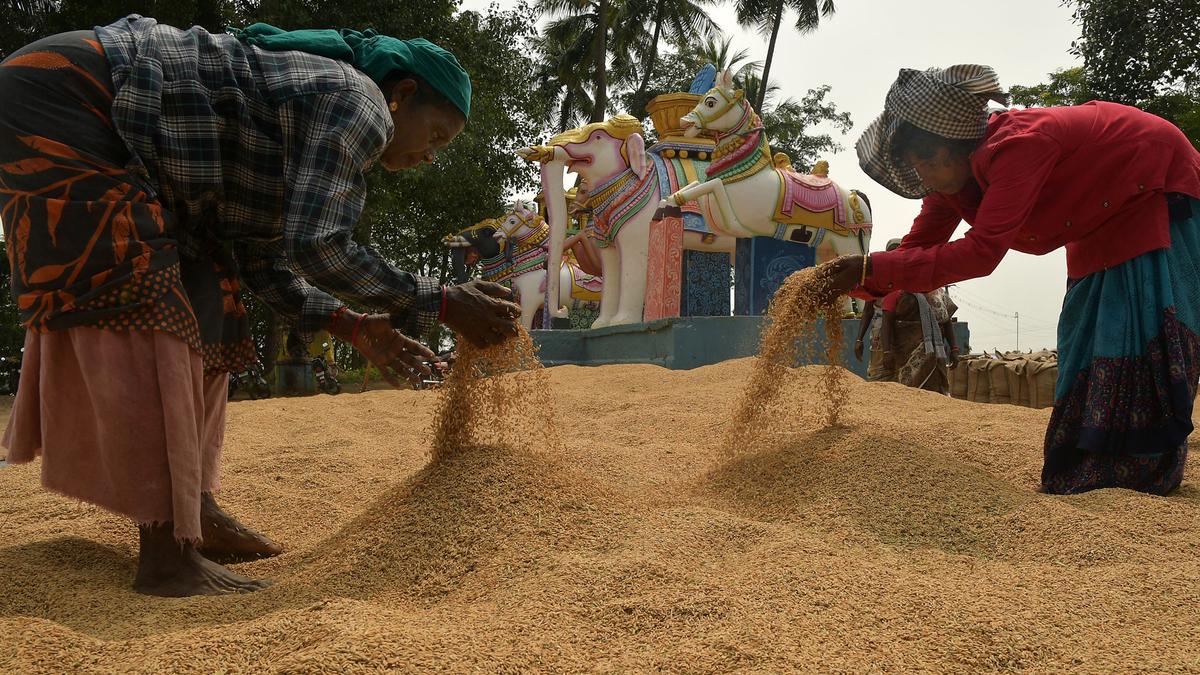
Tamil Nadu scores a hat-trick in exceeding 40-lakh-tonne mark in paddy procurement
The Hindu
Even as the 2022-23 paddy procurement is in its last leg, Tamil Nadu has scored a hat-trick in exceeding the 40-lakh-tonne mark in paddy procurement. Yet, there has been a drop in the number of farmers benefited from the procurement.
Even as the 2022-23 paddy procurement is in its last leg, Tamil Nadu has scored a hat-trick in exceeding the 40-lakh-tonne mark in paddy procurement. Yet, there has been a drop in the number of farmers benefited from the procurement.
To get today’s top stories from the State in your inbox, subscribe to our Tamil Nadu Today newsletter here
As on Wednesday, June 14, 2023, the quantity procured was a little more than 40 lakh tonnes. By the time the procurement period ends in a couple of months, the overall figure may be around 45 lakh tonnes, says an official of the Tamil Nadu Civil Supplies Corporation.
Until about five years ago, 23.87 lakh tonnes, procured during 2011-12, was considered the all-time high. But it was broken in 2019-20 when 32.4 lakh tonnes was procured. This was followed by two years of bumper harvest, when 44.9 lakh tonnes was procured in 2020-21 and about 43.3 lakh tonnes in 2021-22.
Last year, the water release from the Mettur dam began on May 24, at least three weeks before the scheduled date of June 12. Also, the procurement year, with the new rates of minimum support price (MSP), was advanced by a month, meaning the inaugural month was September and not the customary October. However, this year, the release of Cauvery water from the Mettur dam began only on June 12 (Monday) and from the Grand Anicut on Friday (June 16). So far, there has been no announcement on the repeat of the previous year’s decision of advancing the procurement year by a month.
An official attributes the drop in the number of beneficiaries to the change in the method of calculation. Earlier, the calculation was done on the basis of transactions; hence, duplication in the number. For instance, if a farmer raised paddy twice or thrice a year and each time, he or she sold paddy to the Civil Supplies Corporation, the farmer in question was counted multiple times. Now, with Aadhaar and Permanent Account Number (PAN) details of the farmers being collected, the scope for duplication has been eliminated and regardless of the number of transactions a farmer does, there will be no increase in the number of beneficiaries.











